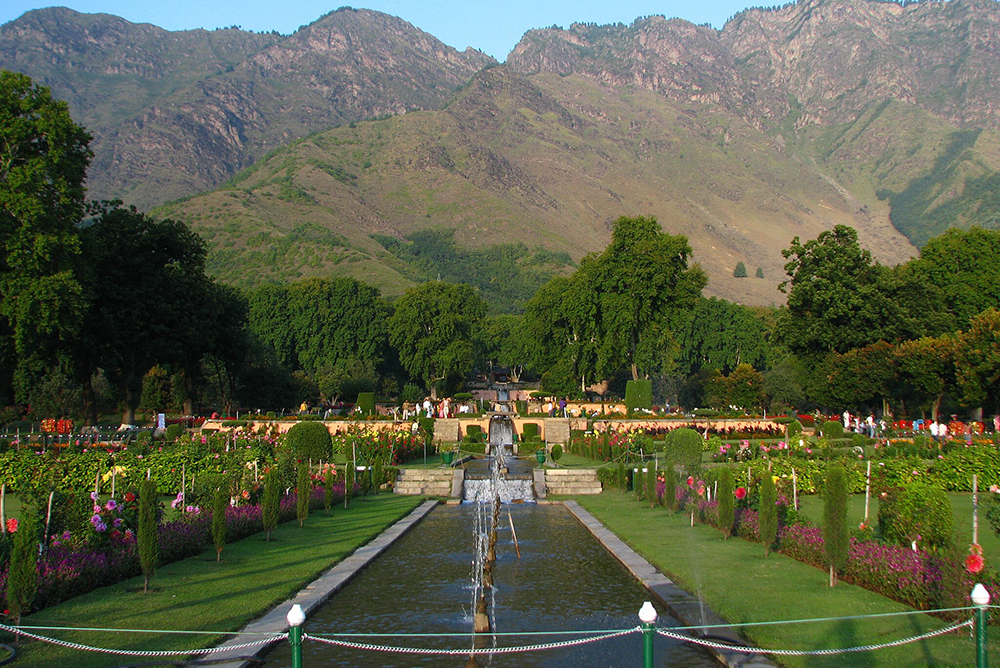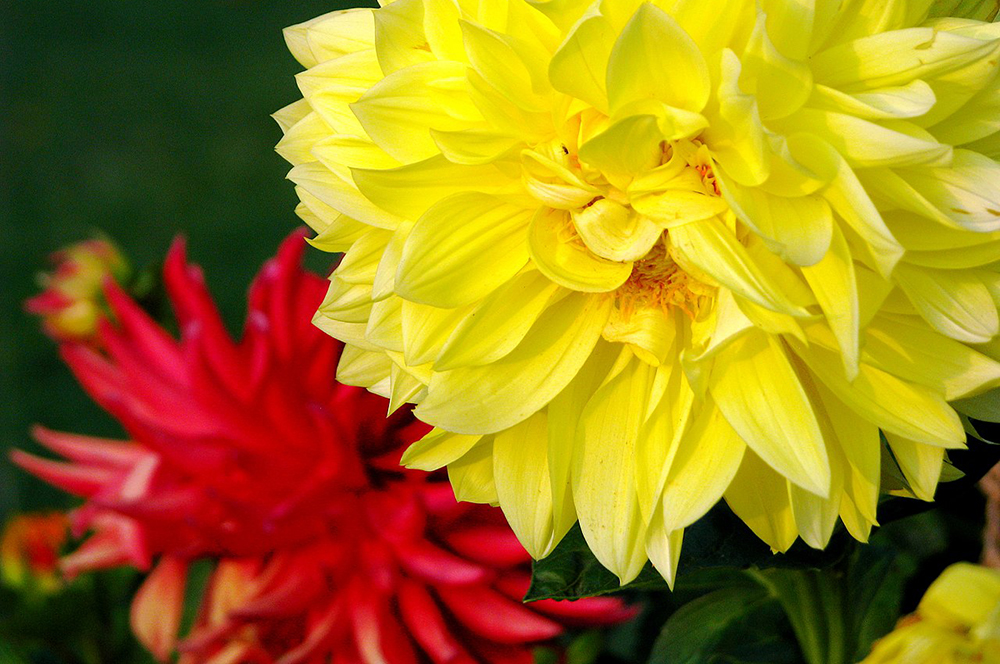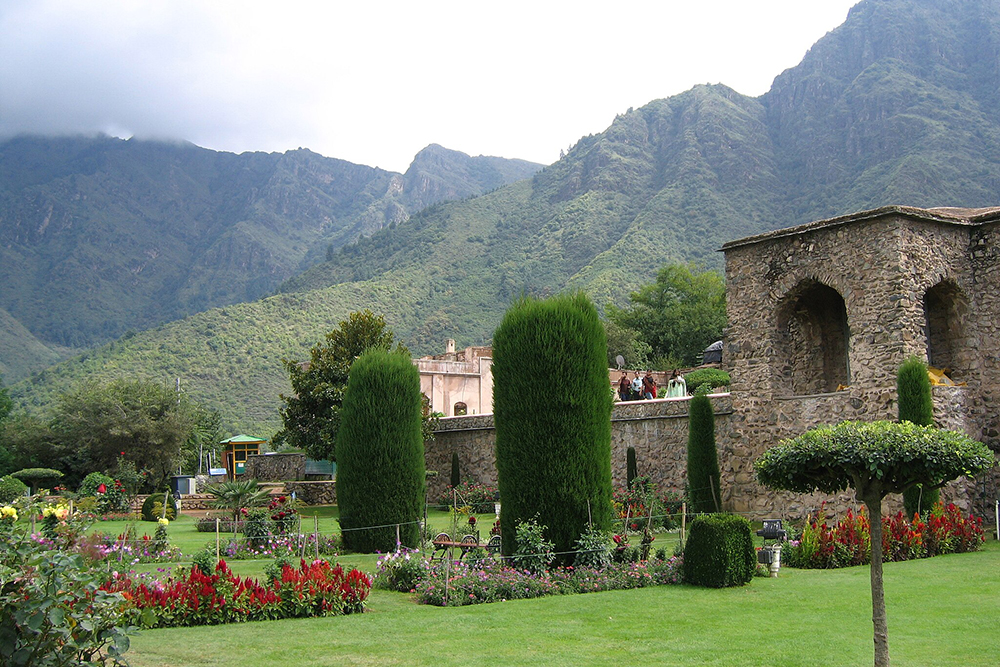
Mughal gardens in the Srinagar district of Jammu and Kashmir, India. (Wikimedia Commons/Sheikhaijaz 786)
As I begin writing this column, I'm surrounded by high decibel sounds of Hindu vocal prayers and talks coming from a television set in the vicinity. It's a daily occurrence early in the morning … and 12 hours later … and in-between. Being a night owl as well as an early bird, I find it painful whenever an aged and moderately hard-of-hearing person tries to fight insomnia by switching on the device with full volume at 3 a.m. or 4 a.m.
By contrast, I do have memories of short stays in religious institutions and ashrams with pin-drop silence too. These moments were painfully awkward to my ears — so accustomed to the noise of daily life in the marketplace — but brought many spiritual blessings. So, two days ago, when a religious sister shared with me about the need for prolonged silent prayer in religious and consecrated life, I began wondering where I stand.
Needless guilty feelings nagged me to pause and reflect about whether I had sufficient silent prayer in my own life. "Let me write a column for GSR and think aloud," I said to myself. "Spending at least an hour if not two in non-vocal prayer is part of my daily routine. Besides, I do that so often when I wake up in the middle of the night. But is that what silent prayer is supposed to be?" As if this wasn't enough, I started feeling miserable by comparing my prayer life with that of sisters living in monasteries and convents.
Advertisement
I asked myself, "Is silent prayer about praying amidst a peaceful external environment, or does it mean being silent within? Is it both together? Is it merely about keeping one's mouth shut or about listening? Is it the silence of meditating on Scripture or the silence of contemplative stillness?" and so on. I also remembered the relative silence during the lockdowns at the beginning of the COVID-19 pandemic.
A whole lot of questions continued running amok through my brain and knocking into each other. My mind was anything but silent! The sound of this internal traffic seemed to mirror the 24/7 noise coming from the road just outside my residence in the cosmopolitan city. I cried out, "Jesus, help me!" and instantly the memory of a poem I'd written when I was 15-years-old stopped all the noise and brought calm.

Red and yellow chrysanthemums bloom at the Nishat Bagh Mughal Gardens in the Srinagar district of Jammu and Kashmir, India. (Wikimedia Commons/McKay Savage)
I was at home on that beautiful and cool afternoon as the city was enjoying the first thundershowers of the season — a big respite after the scorching summer heat. The pleasant weather reminded me of a family trip to Jammu and Kashmir. We were walking in the midst of the most delicate and attractive flowers, with multicolor-shaded petals, in one of the Mughal gardens. The majestic snow-clad Himalayan range was visible on the horizon. These memories inspired me to write my first English poem:
The silence of your heart
Sings nature's music sweet
Real and full of loveliness
That gives me peace.
O if my heart cries for joy
And I slumber,
Should not the flower's fragrance
Give joy as a musical number?
Lord you are mine,
Only mine.
And yet of everyone
Through mysterious love.
You are the music of my heart
And I am your tune.
The tunes of my soul
Sing praise
Greatest is your love my God
Let me of it partake
Till heaven's door opens
I shall wait with praise
Yes, I shall wait!
Whether there's noise or complete silence around, the Holy Spirit has taught me to adjust to my context and pray (John 14:26-27). Always being soaked in the Asian cultural and philosophical milieux, both nature mysticism and unitive mysticism have been effortless and natural to me since childhood and teenage years. I've tried various methods of prayer according to the teachings of saints, but there's nothing like methodless non-vocal prayer.

Colorful flowers bloom at the Nishat Bagh Mughal Gardens in the Srinagar district of Jammu and Kashmir, India. (Wikimedia Commons/Vinayaraj)
Ever since I fell in love with Jesus, every moment has been prayer, if not mine then that of Jesus within me.
Ever since I fell in love with Jesus, every moment has been prayer, if not mine then that of Jesus within me. "The kingdom of God is within you (Luke 17:21)." His abiding presence within seems to be seeing me through my own eyes and listening to me through my own ears. It's like being in Being and Being in being. "Abide in me, and I in you … I am the vine; you are the branches (John 15:4-5)."
India is a country with many cultures and the cradle of several deep and ancient spiritual traditions, but they tend to have a few common traits as a way of life. While nature mysticism finds the divine in the cosmos, unitive mysticism could experience God as the subject — the Self within the self. There needn't be separation between the sacred and the secular in some spiritual traditions. God, humanity and the cosmos are interconnected.
We could either pray silently by separating ourselves from the messiness and noise of the world, or by rising above it, transcending it while remaining wherever we are called to be. Both are valid pathways. The latter is more often the reality in my life as a consecrated virgin and is also the beauty of this vocation for me. Praying and living amidst whichever community God places us for a purpose is both a challenge and a gift. We are called to be a reminder of heaven amidst the noises of our world.






